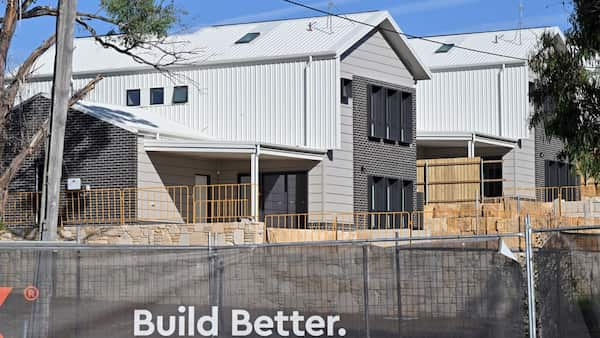Greens leader Adam Bandt has signalled he wants discussions on changes to negative gearing and capital gains tax to be a priority in the next parliament, asking Treasury to prepare a 'green book' of policy information for the Greens.
Negotiating with the crossbench would be a necessity if the election results in , which polls indicate is a possibility.
The Greens are facing a fight to retain the three lower house Queensland seats they won in 2022; only Bandt's electorate of Melbourne, which he has occupied since 2010, is held by a safe margin.
Government departments are required to prepare a 'red book' and a 'blue book' of briefings for the Labor and Liberal parties respectively, which they only receive if they win the next election.
Confident of a minority government, Bandt said the public service should "get cracking" on a green book, with updated and expanded modelling on negative gearing and capital gains tax.
"Experts have panned the major parties' housing policies as a 'dumpster fire' that will push up house prices even further, and with millions of people realising we can't keep voting for the same two parties and expecting a different result," he said.
"We now have a chance for real reform that will level the playing field for first home buyers."
Speaking on the ABC's Insiders program, Bandt said reforms to improve the country were coming from the crossbench.
"In the late 1990s, John Howard's capital gains tax discount really lit a fire under the housing market," Bandt said.
"We've got to defuse this time bomb in a way that is fair."
LISTEN TO

Housing: Different plans to ease the crisis, but will any of them work?
SBS News
11:13
What is the Greens' housing policy?
As well as scrapping negative gearing discounts, the Greens policy would abolish the existing capital gains tax concession for more than one property.
The capital gains tax is applied when selling an asset like a house after owning it for at least 12 months — sellers can claim a 50 per cent tax discount on any profit made from the sale of assets, which include stocks, bonds, jewellery and real estate.
Negative gearing is the ability of an investor to offset any income from an investment against any losses or costs involved in maintaining it — meaning they could pay less income tax.
A Parliamentary Budget Office analysis in June last year revealed that the tax revenue foregone as a result of these two concessions had risen from $6.7 billion in the 2014-15 financial year to $10.9 billion in the 2023-24 financial year. That figure is expected to be $12.3 billion in 2024-25.
Coalition housing spokesperson Michael Sukkar defended negative gearing as "a standard feature of our tax system".
"Where you tax housing more, you get fewer homes and you get higher rents," Sukkar said.
"That will be terrible for renters and terrible for first home buyers, too, who, in the end, will have fewer homes to choose from."
Housing policy has dominated the election campaign, with both Labor and the Coalition promising to help Australians get on the property ladder through access to new builds.
At a leader's debate this week, Opposition leader Peter Dutton accused Anthony Albanese of having "a problem with the truth" when the prime minister denied that the government had requested Treasury modelling on negative gearing and capital gains tax last year, despite comments from the Treasurer last year appearing to confirm the request.
Correction: A previous version of this article reported Bandt as saying the "time bomb" had to be diffused. This has been corrected.
Visit the to access articles, podcasts and videos from SBS News, NITV and our teams covering more than 60 languages.



